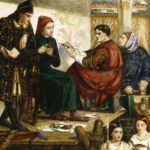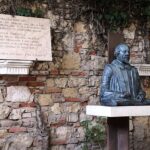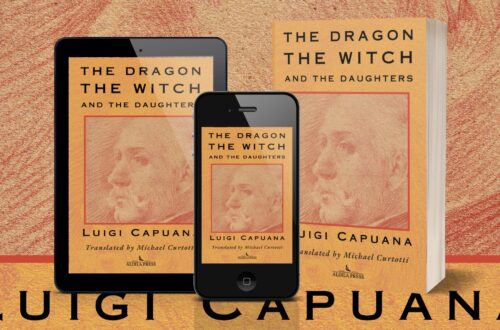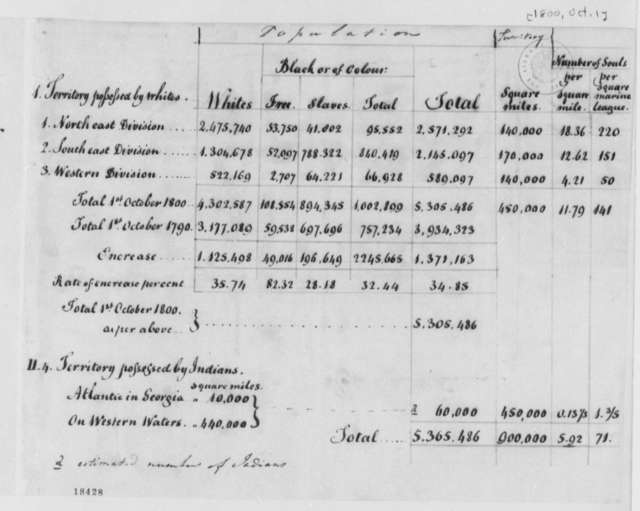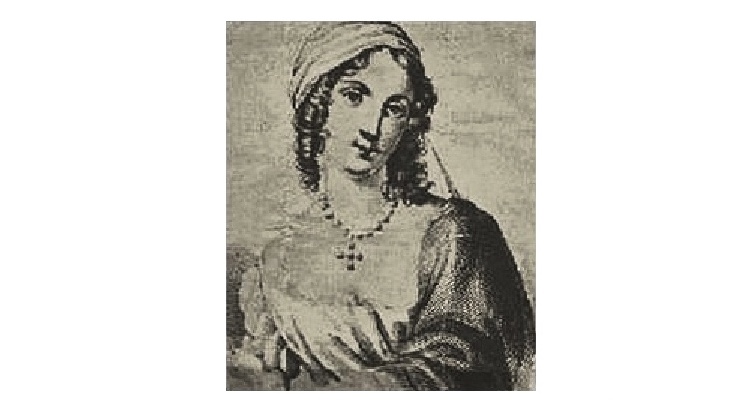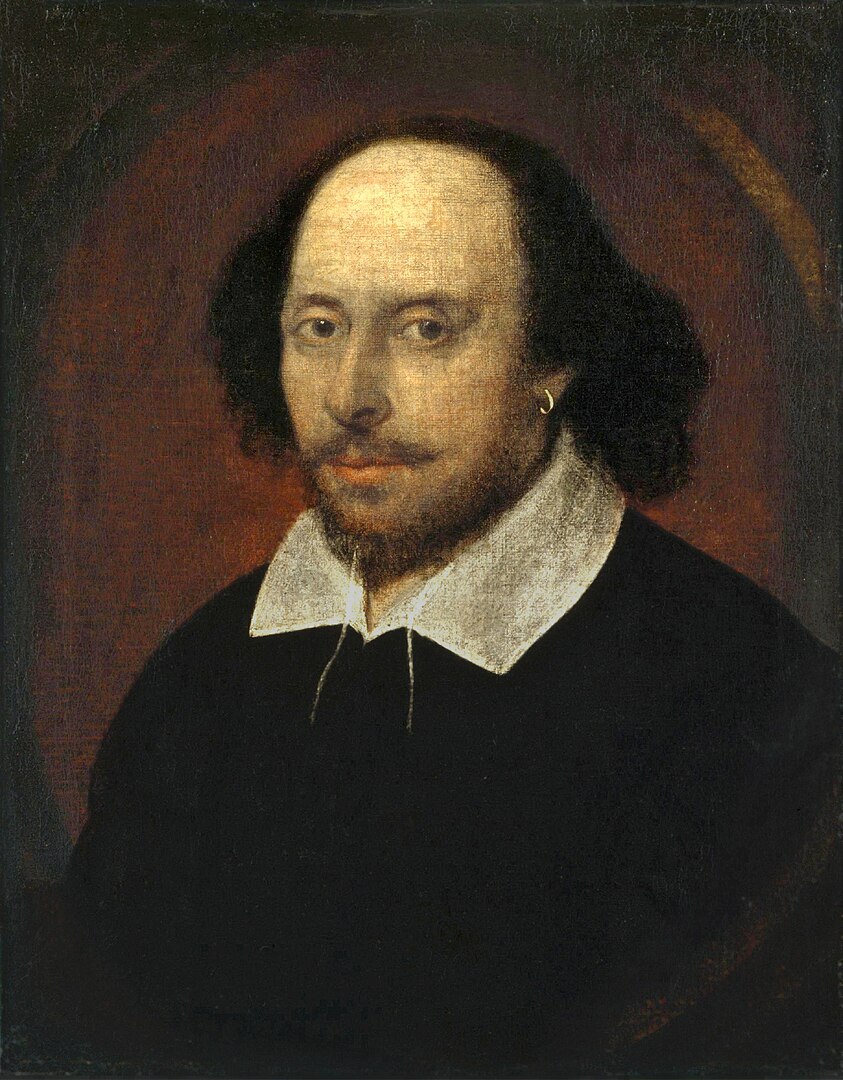
What an Italian novella really taught me about Shakespeare …
It’s a strange place to look, you’d think. Shakespeare is an English poet. No … He is the English poet. So surely there would be little to learn about him in an Italian story, particularly one written before he was even born. But that’s the great thing about taking a turn down the side roads of history. You never know what you’ll discover. Earlier I wrote an article titled: It’s Funny, but Shakespeare is Teaching me Italian Stories. This is a complement and looks at the relationship between Italy and Shakespeare from the opposite direction.
But where to begin? That maybe there was a grain of truth in a Groats-worth of Wit? That Shakespeare was both a practical and an inspired dramatist? That, in substance, his Romeo and Juliet, has a bunch of forgotten co-authors? All of the above and more. I learnt you really can’t hope to understand Shakespeare’s plays fully, if you have never read the raw material that he read and re-worked for the stage. And if you want to think about the implications even more deeply, it showed me how our national stories define our cultural spaces and how, as a result, we can end up losing stories that don’t comfortably fit in one place or another.
But Shakespeare didn’t copy … did he?
Don’t get me wrong. I have no interest in ‘claiming’ Shakespeare for Italy, nor of ‘dissing’ his achievement. That’s not to say that the world (including Italy) isn’t missing out on some great Italian versions of stories Shakespeare made world famous.
Be that as it may, revelations of history can be uncomfortable. Yet only if we prefer myths to truth. Sure they can be comforting, but we miss so much! Learning more about how Shakespeare worked, and some of the literature he drew on, just makes the achievement the Shakespeare plays represent, all the more delightful, at least to me.
The idea that Shakespeare copied from others isn’t exactly new. In fact, in Shakespeare’s own lifetime, A Groats-worth of Wit, made that very claim. It is well known as one of the few references to Shakespeare’s writings, in his own lifetime, by a third party. Most believe the writer is aiming at Shakespeare, because he paraphrases from language in one of Shakespeare’s plays. It is a biting lampoon and describes Shakespeare as “an upstart crow beautified with our feathers” and urges other playwrights not to sell their work to him. Robert Greene was the writer and he published it in 1592. Apart from anything else it establishes that the target of the lampoon was a writer, even if he did draw on the writings of others.
Before we jump to conclusions, a few words of warning. Firstly, the claim may be unreliable. It may just be the words of a bitter failed poet having a go at a successful rival. Secondly, and more importantly, copying the works of previous writers (adapting them), was not at all unusual in Shakespeare’s time and indeed for centuries before him. In Shakespeare’s day you could be a celebrated writer, without being original. Matteo Bandello is precisely in the same position, primarily drawing on and enhancing stories of other writers. The game was to take existing works and make them better. So yes, Shakespeare copied, from many, and that’s OK.
The Shakespeare Myth
What gets to the heart of the question, though is not so much who Shakespeare really was, but who we believe him to be. Who we yearn for him to be. Shakespeare in Love deals in such myths, as I have explored elsewhere. Perhaps we can see that such mythmaking is a slippery slope. We love myths. The grander the myth and the more superhuman the demi-God we put on a pedestal, the more satisfied we are. Which is precisely why Shakespeare in Love was so successful.
What history fails to supply, our myth-making simply invents, in the time honoured and universal human tradition of storytelling.
For most of our myths there isn’t history to supplant, but that isn’t true of the movie. It is clever, almost cheeky, in its substitution of myth for historical fact. “Shakespeare in a pub” picking up tales and ideas is a stock in trade of Shakespeare myth making. Whenever historical evidence is lacking, it can be trotted out. How did Shakespeare read that Italian only version of Othello? Someone in a pub must have told translated it for him, goes the myth.
The movie uses the same “Shakespeare in a pub trope.” Christopher Marlowe sits in a pub with Shakespeare, who is struggling with his idea for a play: Romeo and Ethel the Pirate’s Daughter. He has nothing more than the “bad” title. Marlowe supplies him with ideas. It is the only time Italy is mentioned in the entire movie. Marlowe says “Romeo. That’s an Italian name. Always in and out of love.” Marlowe supplies the ideas of lovers coming from two feuding houses, the killing of a cousin, the name Mercutio – and the threads of our myth making become more tightly woven. History shows us that Matteo Bandello had already written all of these ideas in his own Romeo and Juliet (and in earlier Italian versions). These ideas travelled across national boundaries, and Shakespeare copied them. They were not invented over a mug of brandy in an English pub.
The notion that Shakespeare was the ‘greatest dramatist of all time’ is the foundation myth on which Shakespeare in Love ‘riffs’. It is however a recent belief. For centuries after he died, Shakespeare was not the celebrated writer he was later to become, not even in England. His myth belongs to the British imperial period and the Victorian era. We see exactly the same trajectory in a figure like Dante Alighieri for Italy. Forgotten for centuries, he was then placed on a pedestal everywhere when a national poet was needed. No doubt there are other ‘national poets’ who were placed on sacred altars during the heyday of nation building.
Increasingly the myth is fraying. Scholars have of course always known of the indebtedness of Shakespeare to many many sources. More recently even traditional scholarship has admitted that some of his works are co-authored, including by Christopher Marlowe himself and others. The plays are “super-human”. Not, however, because they were the work of a single inspired genius, but because they built on the inspiration of many contributors. Shakespeare is not one. Like Homer, he is many.
How Shakespeare Really Worked
While delighting us with it imaginings, the mythical narrative deprives us knowledge of how Shakespeare actually worked. What was the true contribution of his plays? We miss how the playwright sat with texts, read them, loved them. Then, from this raw material, from poetry and from theatrical models current in his time, he re-fashioned this material into something new. His plays are part of a chain of works. They speak to each other across time and space; each telling a movement of a single symphony. You don’t experience the whole ‘work’ unless you look both back and forward. Shakespeare in Love, is itself part of that beautiful symphony, as are many other works.
As we sit with the texts, we can actually see the thoughts of the author forming.
When Shakespeare was writing Romeo and Juliet, he was reading from English translations of Matteo Bandello’s novella. (A fact known from textual parallels that appear in Shakespeare’s play). When he came to the part where Juliet sends away her attendants, so that she can take the sleeping potion alone in her bedchamber, Shakespeare seems to have wondered whether to bring the nurse back. It’s a hint that he read the Bandello Italian version directly, for the nurse never leaves in that version. As Shakespeare turned these thoughts over in his head, inspiration struck. No the nurse could not be present:
“Nurse! What should she do here?
My dismal scene I needs must act alone.”
Romeo and Juliet, Act 4, Scene 3
The thought has become a stage direction. Shakespeare puts it in Juliet’s mouth. At the same time he captures the desperation of the moment.
Another example. The seeds of Mercutio are already present in Bandello’s story: a comic storyteller called Marcuccio. From the idea of this character, Shakespeare creates Mercutio, who is, uniquely, a largely original character in Shakespeare’s play. Marcuccio’s hands are always cold. He is there with Juliet at the ball, when she first takes Romeo’s warm hand and says:
“Do not be astonished, gentle youth, that I bless your coming near, for Messer Mercutio with his ice-cold hand, has for a good long time, already frozen mine, and you mercifully, with your delicate hand, have warmed me.”
Matteo Bandello, Romeo and Juliet, p 17
Shakespeare discards Juliet’s teasing joke found in the Bandello version, but the idea of hands meeting which Bandello so emphasises … here is something that can be fashioned into transcendent spiritual beauty. Hands meet like pilgrims travelling from afar, like pilgrims who discover saints, and that saintly love of hands becomes the saintly love of lips. The moment becomes poetry and the poetry speaks of the deepest nature of love, that union between two souls, the closest we come, in this world, to the divine. As in many places, Shakespeare takes direct emotional narrative and turns it into poetry and ideas.
Romeo:
If I profane with my unworthiest hand
This holy shrine, the gentle fine is this:
My lips, two blushing pilgrims, ready stand
To smooth that rough touch with a tender kiss.Juliet:
Good pilgrim, you do wrong your hand too much,
Which mannerly devotion shows in this;
For saints have hands that pilgrims’ hands do touch,
And palm to palm is holy palmers’ kiss.Romeo:
Have not saints lips, and holy palmers too?Juliet:
Ay, pilgrim, lips that they must use in prayer.Romeo:
O, then, dear saint, let lips do what hands do;
They pray, grant thou, lest faith turn to despair.Juliet:
Saints do not move, though grant for prayers’ sake.Romeo:
Then move not, while my prayer’s effect I take.
Thus from my lips, by yours, my sin is purged.Juliet:
Then have my lips the sin that they have took.Romeo:
Sin from thy lips? O trespass sweetly urged!
Give me my sin again.Juliet:
Shakespeare, Romeo and Juliet, Act 1, Scene 5
You kiss by the book.”
“What’s in a name …” is another instance. It is a famous line, but how did Shakespeare create it? In Bandello, the moment is one of anguish for Juliet, she cannot imagine how her love for the son of her enemy can ever succeed. Yet abandon that love, she will not. She cannot, come what may. Shakespeare takes this moment and transmutes anguish to poetry. Romeo’s name, cannot be his true nature. The poetry is in sonnet form, another element that Shakespeare takes from Italian models and refashions.
There are many such inspired moments, yet Shakespeare is not perfect.
The play is longer than the novella and once you have read the novella, it shows. Shakespeare needed to fill two hours for the stage, and in some places the word play is, well, just padding, distracting word play, which slows the action of the story. On the other hand, when Shakespeare came to the point where Romeo learns of Juliet’s death (as he believes), he simply adopted the bad changes that the translators had made to Bandello’s story. We learn nothing of Romeo’s feelings. He has just been told that Juliet is dead, yet he feels nothing? Expresses nothing? Bandello’s Romeo unfolds for us his grief and guilt at his failure to save Juliet. Even if Shakespeare hadn’t read Bandello’s version, surely the plot called for something more at this point.
These are just a few selected examples. Sit with the works, and you will see others.
How can we not appreciate Shakespeare more, when we discover such things? The truth of his work. Not a god, but surely an inspired writer.
Do we have a lost Transnational Literature hiding in plain site?
As you’ll have gathered, from the title of this website, my writings are often a conversation about the boundaries we draw: boundaries which we walk through the world believing to be real. Perhaps this is where we can gain the most important insights from understanding how Romeo and Juliet (and many other works) made their way to the Elizabethan stage.
A former Prime Minister of the United Kingdom notoriously asserted: “If you believe you are a citizen of the world, you are a citizen of nowhere.” Such a false and pernicious idea has deep roots. But it’s easy to believe. Where is the literature? Where are the stories of world citizens? What culture do they belong to? They are rootless, they have no culture, such views would argue. We see clearly how, when the world is viewed only through a ‘national’ lens, all stories belong to exclusively one or other nation, and anything the lens does not capture, loses meaning and value.
As we follow Romeo and Juliet from England back to Italy, and perhaps beyond, we see how misplaced this model is. We make it possible if we forget all but the mythologised past created in the process of nation-building. Romeo and Juliet is a transnational story, and in its deeper versions a Mediterranean story. It belongs to everyone. The play, expressed in English prose and verse, tells a story set and primarily created in Italy, but deals with issues of death, love and conflict that are universal across cultures. Such stories have become global and, however much they may adorn this or that part of the world, they are as much, if even more, the stories of those who feel themselves to be “world citizens.”
This division of literature into “national” collections, also sees us missing what is in plain sight. We have forgotten Matteo Bandello. Not because his works were second rate, for if they were, Shakespeare would not have drawn so liberally on them, and they would not have been celebrated across Europe, but because Bandello doesn’t fit our national model of literature. Even monumental histories of Italian literature virtually consign him to a footnote. He is dismissed as “just another novelliere” who copied the style of Boccaccio. Yet those who know him, know he was one of the most influential Italian writers of the Renaissance. He belongs entirely neither to England nor to Italy, for his writings crossed the boundaries of both. His stories fell between the cracks, so to speak. Perhaps in future he will be more celebrated in both countries.
Image
Shakespeare Chandos portrait, c. 1600


